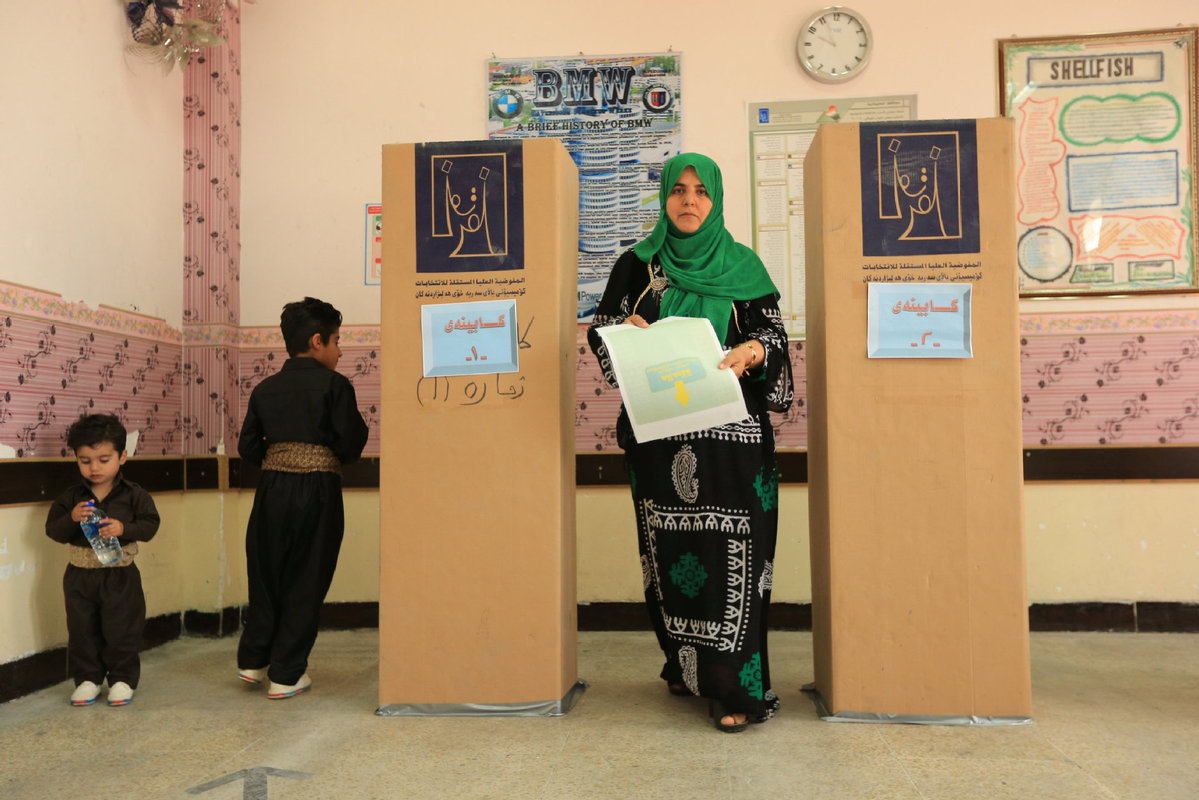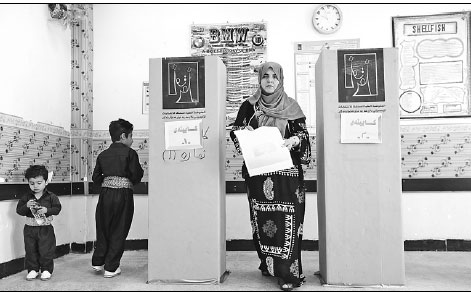Polls close in first post-IS election

Record low turnout but Iraqis hope for 'better lives'

BAGHDAD - Millions of Iraqis headed to polling stations across the country on Saturday to vote for the next parliament, with hopes that the election can make a difference to their lives after unrelenting chaos, violence and poor governance since the US-led invasion in 2003.
Although the election saw a record low turnout of just over 44 percent of the eligible 24 million voters, those who did cast their ballot hoped the new parliament would bring peace and an end to what they perceive as government corruption.
Kamil Khudir, who cast his vote in the Salhiyah neighborhood in downtown Baghdad, said: "I hope the vote will bring better lives for our people. Young people are jobless and we need public services. We need everything."
Om Ghassan, an elderly disabled woman, headed to a polling center in Mansour neighborhood in western Baghdad with the help of her daughter.
"I want peace for my grandsons. I want to hold those who have squandered the wealth of the country accountable," Ghassan said.
"We had enough oppression and violence. We have to do something, at least by choosing the right people, because we need a professional leadership that could end our suffering."
The retired teacher attributed her voting enthusiasm to the diminished sectarianism in the country.
"The sound of sectarianism was clear (in 2014), but in this election sectarianism is much less, and security situation has much improved after the defeat of the Islamic State group," Ghassan said.
Prime Minister Haider al-Abadi - who took office as IS rampaged across Iraq in 2014 - is angling for a new term, claiming credit for defeating the jihadists and seeing off a Kurdish push for independence.
But competition from within his Shiite community, the majority group dominating Iraqi politics, will likely splinter the vote and spell lengthy horse-trading to form any government.
His chief rivals were former prime minister Nouri al-Maliki and Hadi al-Amiri, who heads the powerful, Iran-backed Badr Organization, which participated in the war on IS. Abadi was also opposed by the influential cleric Muqtada al-Sadr, a staunch nationalist who has railed against US and Iranian influence in Iraqi politics.
"Iraq is strong and unified after defeating terror," Abadi said after voting.
Iraq's election commission expects the results within 48 hours.
For most Iraqis, fighting widespread corruption and comprehensive reforms are essential to building an accountable government and forging a strong country.
Many, however, admit that it will take time and patience for the democratic process to achieve its goals.
"With the democratic change in the country, we reject the presence of corrupt people, and we have come to vote for hope that change can come true," Hameed al-Mosawi, a journalist, said after he and six of his family members cast their votes.
There are 329 parliament seats at stake, with nearly 7,000 candidates from dozens of political alliances.
Iraq's constitution allows lawmakers more than three months after the ratification of the election results to form a government. But many expect the process to drag on for much longer if there is no clear winner, as dozens of political parties attempt to cobble together a political bloc large enough to hold a majority of seats in parliament.
Xinhua - Ap - Afp
An woman prepares to cast her vote at a polling station during the parliamentary election in Sulaimaniyah, Iraq, on Saturday.Ari Jalal / Reuters |
(China Daily 05/14/2018 page11)

































